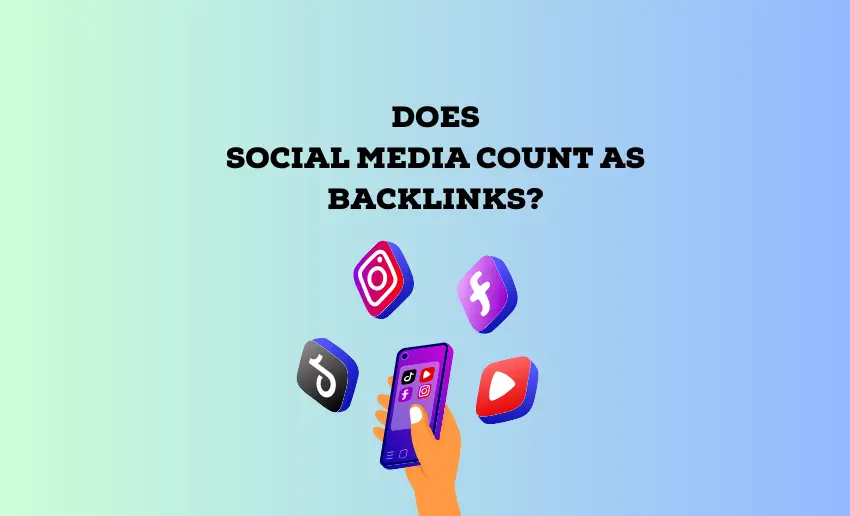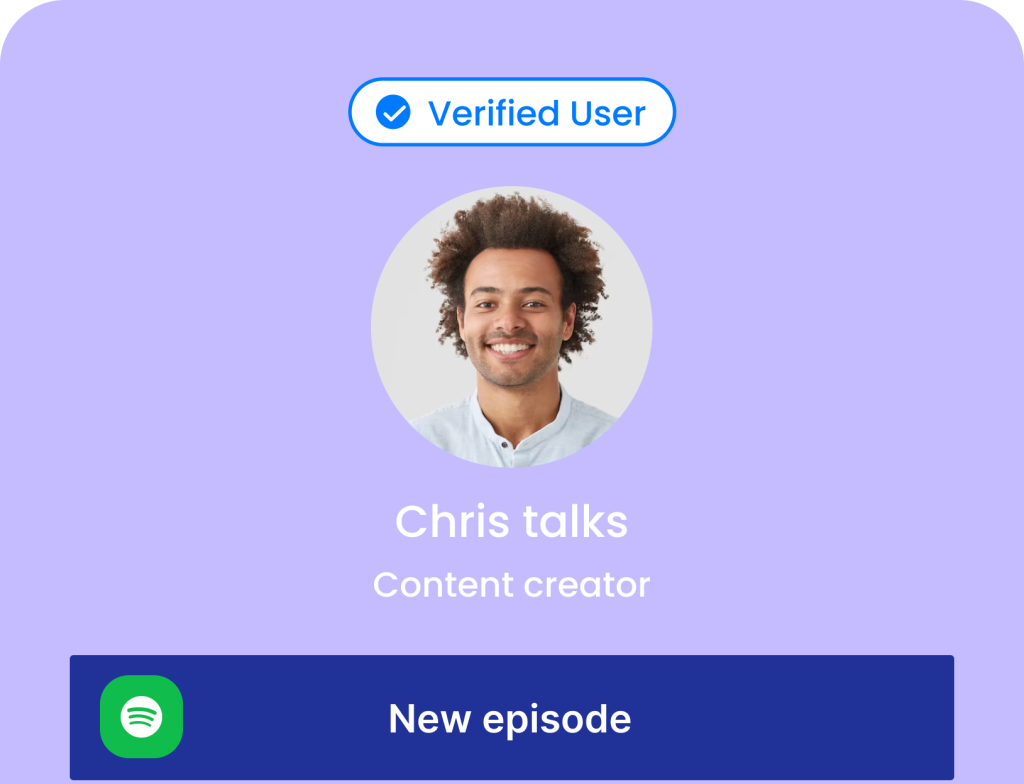Online visibility and search engine optimization (SEO) constantly change, making it tougher for brands to stay relevant. With the rise in the usage of social media platforms, creators begin to wonder whether social media holds weight in terms of backlinks.
Backlinks are virtual endorsements from one website to another and have long been crucial in determining a site’s search engine ranking. But today, the role of social media in this equation has become a topic of curiosity.
Are social media backlinks SEO-worthy? Can a tweet, a Facebook post, or an Instagram link be considered a backlink, and how do these social signals impact a website’s SEO performance?
Links from social media platforms don’t count the same as regular backlinks for SEO. Most social platforms label external links as “nofollow,” meaning search engines like Google don’t pass on any SEO value through these links.
While social media links may not directly contribute to a website’s SEO in the same way as traditional backlinks do, they can still have an impact. Search engines may consider social signals, such as likes, shares, and comments, as content quality and relevance indicators.
Additionally, social media profiles can rank in search engine results, indirectly influencing online visibility. Therefore, while social media links may not be traditional backlinks, they contribute to the overall online presence and can indirectly affect SEO performance.
Does Instagram count as a backlink?
No, Instagram links typically do not count as a backlink for SEO. As mentioned, social media platforms, including Instagram, use a “nofollow” attribute for external links. While Instagram itself may not directly contribute to backlinks, having a well-optimized Instagram profile and using the platform to promote content can indirectly enhance your online presence and support your overall SEO strategy.
Do Facebook links count as backlinks?
No, Facebook links don’t operate as traditional backlinks. This is because most links on Facebook are marked as “nofollow,” meaning search engines do not attach any SEO value to these links. Just link Instagram; maintaining an active Facebook presence can indirectly support your overall SEO efforts by enhancing brand visibility and driving traffic to your website.
6 Ways to increase SEO-worthy backlinks
Make no mistake, backlinks are important for SEO efforts. And although social media links don’t count as backlinks, there are a few other ways you can improve on SEO-worthy backlinks. Here are some for your consideration:
1. Diversify your backlink sources
Enhance your SEO strategy by diversifying backlink sources beyond social media. Seek opportunities for guest posting on relevant websites, creating valuable content that attracts natural backlinks. This approach not only broadens your link profile but also strengthens your website’s authority and credibility in the eyes of search engines.
2. Engage in Influencer collaborations
Collaborating with influencers in your industry can be a powerful strategy. Influencers often have established audiences, and when they link to your content or website, it can boost your visibility. Ensure the collaboration aligns with your brand, and choose influencers whose followers are likely to find your content valuable.
3. Explore cross-platform promotion
Extend your reach by promoting your content across various platforms. Utilize different social media channels, forums, and community websites to share your content. This increases the likelihood of attracting diverse audiences and creates opportunities for varied backlinks from different sources, contributing to a well-rounded SEO strategy.
4. Prioritize quality content creation
Valuable and shareable content is a cornerstone of effective SEO. Focus on creating high-quality, informative, and engaging content that naturally attracts backlinks. When your content is deemed valuable by other websites and users, they are more likely to link to it, bolstering your backlink profile and positively impacting your search engine rankings.
5. Reclaim Links
Link reclamation means finding instances where your brand or content is mentioned on other websites without a link. You can do this by setting up Google Alerts for your brand or content and spotting mentions without a link. Contact the website owner and ask them to add a link to your site.
6. Learn from your competitors
Another effective way to get backlinks is by studying your competitors. Identify your main rivals and use a tool to see which websites link to them. Then, approach those sites and suggest linking to your content. This method helps you get quality backlinks from websites in your industry that already trust your competitors.
Yes, content creators can still leverage social media for SEO. While social media links may not function directly as traditional backlinks, social signals and engagement can positively influence online visibility.
Maintaining active and optimized social media profiles, sharing quality content, and encouraging user interaction can enhance your brand’s online presence and indirectly impact SEO. Social media also provides an avenue for content promotion, potentially attracting external links from other websites, which can contribute to your overall SEO strategy.
What counts as an effective SEO backlink?
Several key factors characterize an effective SEO backlink:
1. Relevance
The link should come from a website or content thematically related to yours. Search engines consider the context when evaluating the significance of a backlink.
2. Authority
Backlinks from reputable and authoritative websites carry more weight. A link from a well-established and trusted source is more valuable in boosting your site’s credibility.
3. Diversity and naturalness
A diverse backlink profile from various domains and sources is beneficial. This diversity signals to search engines that your content is valued across different online platforms.
Natural backlinks are earned organically due to the quality and relevance of your content. Search engines value links that are not manipulative or spammy.
4. Anchor text optimization
The anchor text, or the clickable text of a hyperlink, should be relevant to the linked content. Properly optimized anchor text provides search engines context about the linked content.
Is backlink buying good?
Buying backlinks is generally not considered a good practice in the world of SEO. Search engines, like Google, value natural and organic link-building processes. Purchasing backlinks can lead to several risks, including:
1. Penalties
Search engines may penalize websites that engage in buying backlinks. This can result in a drop in rankings or even removal from search engine results.
2. Low-quality links
Bought backlinks may come from low-quality or spammy websites, harming your site’s credibility and reputation.
3. Unnatural link profiles
Search engines aim to rank websites based on genuine authority and relevance. Artificially inflating your link profile with purchased links can create an unnatural and suspicious online footprint.
4. Wasted resources
Instead of investing in bought links, resources are better spent on creating valuable content and engaging in legitimate, sustainable link-building practices.
In the end
While social media links might not work the same way as regular backlinks for SEO, they have a notable impact indirectly. The interaction and signals on social platforms influence how visible a website is online, highlighting the changing landscape of digital connections. Therefore, creators must align social media efforts with broader SEO objectives to enhance the overall online presence.








